VMware CEO Pat Gelsinger On Maintaining Independence From Dell EMC, The Risk Of Channel Conflict, And Building A Relationship With AWS CEO Andy Jassy

VMware's Brave New Multi-Cloud World
The IT landscape has shifted rapidly under VMware's feet over the past few years. A software vendor that achieved more than a decade of dominance in the data center has found itself adapting to highly disruptive new realities -- its core technology challenged by the advent of public cloud and application containers.
VMware CEO Pat Gelsinger has led the charge to pivot the company to seize opportunities created by new computing paradigms, rather than suffer the fate of other technology stalwarts disrupted into irrelevance. He's done it over the past year under the watchful eye of Dell Technologies and its legendary founder, Michael Dell, now chairman of VMware's board.
The strategic shift set in motion two years ago was on full display at VMworld, the company's massive conference held this week in Las Vegas. VMware, the private cloud kingpin, clearly was showcasing how it was repositioning itself to be a multi-cloud lynchpin -- an enabler of heterogenous environments through new products and strategic partnerships with just about every major cloud player on the market.
Gelsinger sat down with CRN to discuss the relationships with Dell, Amazon Web Services and Google and how they will empower VMware to thrive into the next decade. Edited excerpts of the conversation follow.
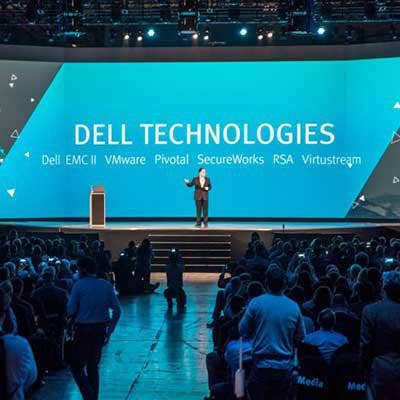
When Dell's acquisition of EMC, and with it VMware, happened, how did you envision the new parent company impacting VMware's business?
We described it in three words: independence, ecosystem and acceleration.
We're going to remain governed as an independent entity with an independent board. And he would become our chairman of the board. So [former EMC CEO] Joe [Tucci] went off, Michael [Dell] came on. Jack Egan, the son of the 'E' in EMC, went off, and Silver Lake's Egon Durban went on. And we were going to be governed similarly to what was the case before.
The strong affirmation was we would continue to support the independent ecosystem of VMware, whether that in whole or in part is good for Dell's business uniquely.
And we're going to get a billion dollars of incremental revenue synergies. That was the picture we laid out.
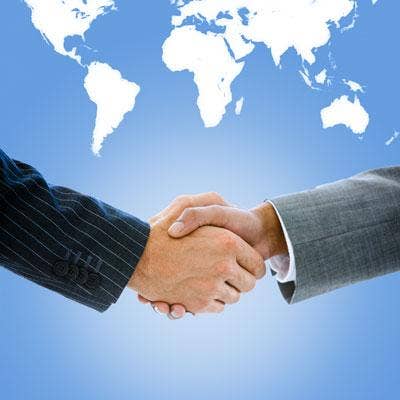
Is the relationship with Dell working out as you envisioned?
Here we are two years from that day of announcement, almost, and a year from the day of consummation. At this point, it's working well.
We say the debt offering we just did is a proof point for that. VMware now has an independent debt rating. We have a lot less debt than Dell. We're investment grade and trust me, as we went to creditors to do the debt rating, there was enormous scrutiny on governance. How does it work, what's this thing called related parties, tell me how board meetings function? Lots and lots of questions there because if they're going to give us an independent rating from Dell, we have to really be independent.

How has the Dell acquisition impacted your ecosystem, technology and channel?
Obviously, you go to an event like VMworld you see the ecosystem is alive and well. The two big announcements we've done last year are IBM and Amazon. How much revenue does Dell get from IBM and Amazon? Approximately zero. And those were our two big partner announcements.
So the idea of 'it's good for VMware it's good for Dell Technologies' has been definitely embodied. Here we are on the VMware stage and I have Dion Weisler, the CEO of HP Inc., announcing our partnership. More proof points. It just happened Michael Dell was in the front row.
So I think we're proving the ecosystem is working.

You mentioned acceleration. How is the synergy with Dell helping ramp revenue?
As we said on the Q1 earnings call, we're raising our guidance of acceleration from $200 [million] to $250 million this year. Just to give you the math, the billion dollars is over and above what D plus E were doing on the day that we closed the deal. Over and above that is $250 million this year and getting to a billion dollars of yearly revenue benefit for VMware.

Does Dell's ownership create any risk of channel conflict? If so, how do you work with Dell to eliminate that risk?
There's risk there every day, every transaction, so we have to be very disciplined in our processes.
One of the things we did as a company about a year ago, we rolled out a major restructuring of our channel programs that have better deal registration, rewards for partners that create business in the new product areas versus just fulfill product, give them better benefits for service delivery, so those programs have been pretty essential to allow us to create a disciplined process for Dell to grow and our other partners to grow as well.
It just can't be that we're shoving to Dell, that Dell picks up business that other partners might have gotten otherwise. Other partners would do something else other than work with us in the future, so this requires a lot of discipline. Our programs need to be well in place … and Dell needs to discipline their sellers very well because they can't go strong-arming partners.
How do you execute on your channel plans while balancing the Dell relationship?
It has to be done in a way that is effective with the Dell relationship as far as governance, deal registrations, to have a thriving channel ...Like a registration program, you have to be working these on both sides. You have to be hearing the noise from Dell, or the noise from the VAR, and be able to execute and manage that on the Dell side. These things are too close together to think you can separate them organizationally and be effective in making that a thriving community.
Some of our other channel partners should be very wary. How can I be assured I get the services, that my registration is honored, that Dell as a distributor doesn't interfere and take that to a different partner? There's a lot of detailed, disciplined execution there. If you don't do that well, you can lose a partner pretty quickly. And our objective here is to be growing the partner community, so we're very mindful we have to do that extremely well.

Are there plans to fold the VMware channel into Dell's?
No.
There's no way that a company can be independent and not have an independent route to market and an independent voice in the market. If those aren't independent, you're not an independent company.
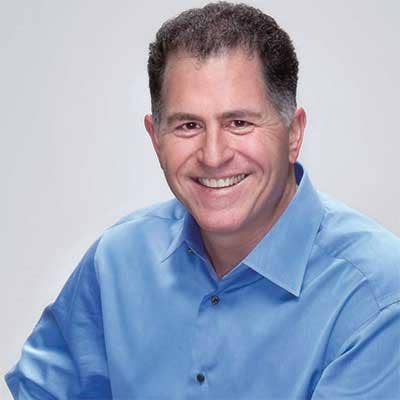
What's your working relationship like with Michael Dell [pictured]? How involved is he in strategic decisions?
He's involved. He's the chair of the board. He's also an inquisitive, technical guy. I have a pretty high-bandwidth conversation with him, as I would the chair of the board before him.
You don't say, 'Hey Michael, I just want to let you know that tomorrow we're announcing an AWS partnership.' He's involved. But he also is very thoughtful that, 'Hey, you're the CEO, you run the company.' Even as we engage, and he certainly meets with and talks to others on my management team, he's very clear as well that the best board meetings are short and infrequent.
I'll review board agendas with him, obviously acquisitions, things like that they'd be involved in, as any board needs to be involved in. Allocations of capital, big strategy decisions. But I run the company. And every once in a while we'll have a conversation on something where I feel like I need his input, we'll finish the conversation and he'll say, 'The CEO needs to make those decisions, I'm not going to even render an opinion.'
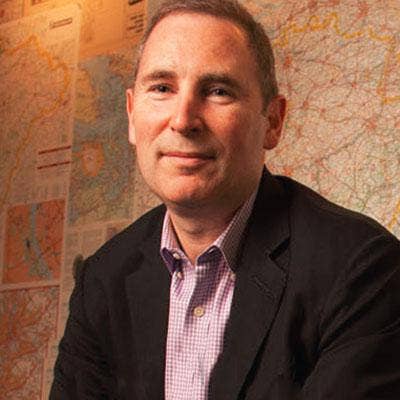
Speaking of people that joined you here on stage at VMworld, it looks like you and AWS CEO Andy Jassy [pictured] have also forged a strong working relationship?
As we went into this, obviously we didn't start out with the greatest relationship between Amazon and VMware, so there was a bit of trepidation on both sides. Are you going to deliver or not, Andy? So there was some relationship-building to be done there, and I would just say they've been a great partner.
Two things allowed the partnership to emerge. One is customers asked both of us to go do this. Second is we were able to engineer a compelling solution together. We're both product companies, engineering-centric companies at the end of the day. The engineering teams are excited to work with each other, the customers are excited about the product. That's a pretty good formula.

You released the price sheet for VMware Cloud on AWS this week. When will partners learn the compensation model?
Early next year.
What we've said is this year, the number of customers aren't going to be that large. We're getting a lot of the systems and capabilities in place. But as we expand, it would really be in two different aspects -- one would be enabling of our VMware Cloud partners to become resellers or MSPs for VMware Cloud on AWS, and the other is our general VARs and distributors to make the service available as well.
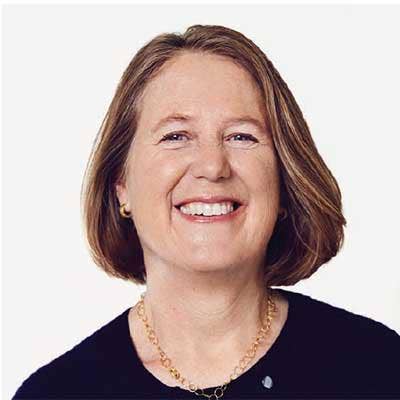
On the topic of leaders of hyper-scale cloud providers, VMware obviously has a relationship with its founder Diane Greene [pictured], who now runs Google's cloud. Google's Sam Ramji joined you on stage to discuss a partnership around Kubernetes. Any VMware Cloud on Google Cloud Platform talks under way?
We don’t have anything to announce there. But that's certainly a possibility over time.
Trust me, Sam [Ramji, vice president of product management for Google Cloud Platform] would not have been on stage without Diane being comfortable and confident in what we're doing together. And we announced last week the Google Chromebooks relationship as well.
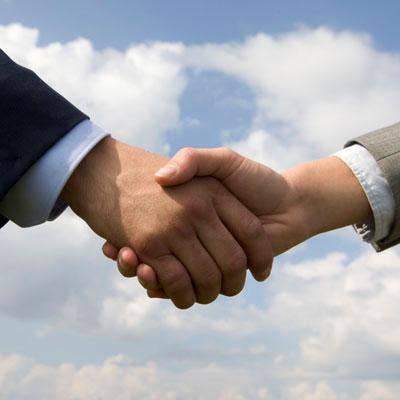
How does VMware decide which cloud partnerships to pursue?
As we engage with Microsoft, Amazon, IBM, Google, our engagements there are really focused on doing different things with the different cloud partners that are very meaningful.
Google, to some degree, they invented containers and that technology, they're driving Kubernetes, so the partnership with them focused around Kubernetes and containers. We announced the Azure partnership around Horizon and delivering Horizon-as-a-Service because most of the apps on the desktop for VDI are Microsoft apps. The customer often has other applications that are aiming toward Azure, the productivity suite, so again it just made a lot of sense.
Amazon is the biggest IaaS in the market by a long shot with the biggest private cloud IaaS. OK, that makes sense to put those together. The IBM relationship is we're going into very large joint customers that typically have IBM Cloud and GTS [Global Technology Services] relationships and large footprints of VMware that are already managed by GTS.
As you look at those four, we've structured relationships that are very unique and leveraged around the core capabilities of each one of those mega partners. Over time, we're going to continue to expand services that we do with each one of them.
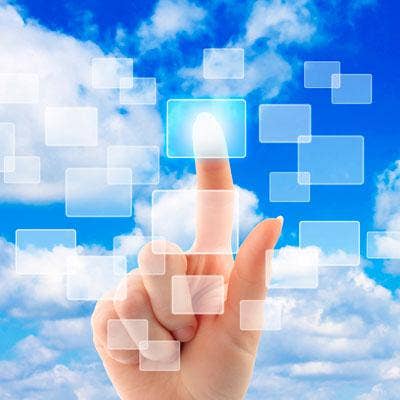
Why is it important to enter these partnerships with companies that a few years ago would have been seen as clear rivals?
It's a multi-cloud world and I think we're uniquely positioning VMware to be an enabler in the multi-cloud world that really benefits the core VMware customers and combines it with unique capabilities with each of the mega-cloud providers.
While it was never our intention to be competing in the mega-cloud space with vCloud Air, clearly it left customers wondering how were we adding value.
We've developed a number of technologies, we've moved that onto OVH, we're leveraging those technologies in a multi-cloud way. It's a very clean picture. We're not fighting with the cloud vendors on any dimension, we're adding value and partnering essentially with all of them.
Any technology company, if you're fighting the wave of technology, you're likely to become driftwood. If you're riding that wave of technology, you're likely to become a very powerful and customer-valued entity in the future. You either are on the right side of it or you're not.
What do you want partners investing in to be successful in the next five years?
We really want them to embrace this broadening of the VMware strategy. It's critical for us to work with them where they come into that. Few partners can be able to implement the full breadth of the VMware strategy now. You must be leaning forward, because if you're just delivering vSphere, we're very happy to close the transaction, pick up a few points and be done. But it's all about being a transformational partner as we go with a very broad set of capabilities. Working with you and our product and technologies, so we can go to the customers and take them forward into this digital future. So let's pick the lanes for different partners that they can do that.